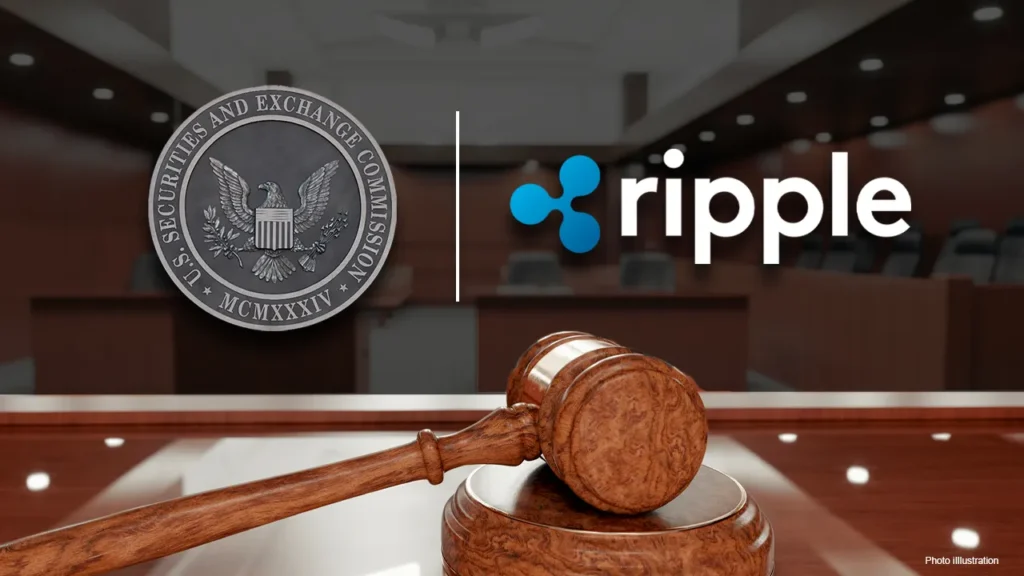Prominent crypto lawyers reviewed the SEC’s redacted remedies brief filing and discussed the potential consequences, casting doubt on the SEC’s allegations.

The discourse surrounding the lawsuit between Ripple and SEC has gained momentum following the SEC’s submission to the court of its redacted remedies reply brief and supporting briefs.
Specifically, James K. Filan, a prominent attorney in the cryptocurrency industry, disseminated the update, which sparked debates in the cryptocurrency market.
Therefore, let’s examine the SEC’s reply brief to determine how it might affect the ongoing legal battle.
Disclosure of the SEC’s Reply Brief
The SEC has submitted its redacted remedies reply brief with corroborating exhibits amidst the Ripple-SEC legal dispute, signifying a noteworthy progression in the case.
The central focus of the SEC’s argument is the alleged recurrence of violations committed by Ripple and the imperative need for injunctive relief to avert further infractions.
The SEC is primarily concerned with Ripple’s 2013 history of unregistered XRP token sales and its forthcoming unregistered crypto asset issuance.
According to the SEC, Ripple’s previous activities present a threat, necessitating regulatory intervention to protect investors and preserve market integrity.
Meanwhile, the SEC responds to Ripple’s arguments by emphasizing the rejection of analogous defenses in prior proceedings, such as the Coinbase case.
Additionally, it contends that Ripple’s modifications to prevent further infractions are insufficient.
Furthermore, the SEC contests Ripple’s grounds for disgorgement of illicit profits, highlighting the detriment institutional investors have suffered due to undisclosed financial terms.
The ongoing legal discussion highlights the intricate nature of the Ripple-SEC conflict and emphasizes the critical importance of regulatory transparency in determining the trajectory of the cryptocurrency industry.
An Analysis of the Experts’ Opinion
Pro-XRP attorney Bill Morgan examines significant concerns raised in the SEC’s most recent filing, explicitly focusing on financial injury and the possibility of a permanent injunction.
By arguing for a broad definition of financial injury, the SEC contests the interpretation put forth by Ripple.
Notably, Morgan expects an appeal but doubts the likelihood of disgorgement.
In contrast, the SEC argues that Ripple’s principal activity consists of selling XRP to institutions, which is sufficient cause to grant a permanent injunction.
Additionally, the SEC asserts that Ripple’s defense regarding over-the-counter (ODL) sales is without validity, which could result in a broad permanent injunction.
On the other hand, Morgan is uneasy with the court’s prior categorization of ODL sales as investment contracts and anticipates that Ripple will face obstacles on appeal.
Given this, the ongoing emphasis is on substantiating the claim that ODL sales constitute immediate consumptive use, which is vital for Ripple’s defense.
Conversely, Jeremy Hogan, an authority on the law, argues that the SEC’s arguments are meaningless.
Hogan highlights the SEC’s lack of action in addressing critical concerns, including Ripple’s On-Demand Liquidity (ODL) sales and the need for updated information regarding damages.
Additionally, he underscores the SEC’s apparent indifference, which suggests a feeble position in the legal dispute.
Both parties’ submission of the briefs has increased the anticipation level as the case awaits the judge’s ruling. This represents a pivotal juncture in the legal proceedings surrounding the Ripple Vs. SEC lawsuit.
